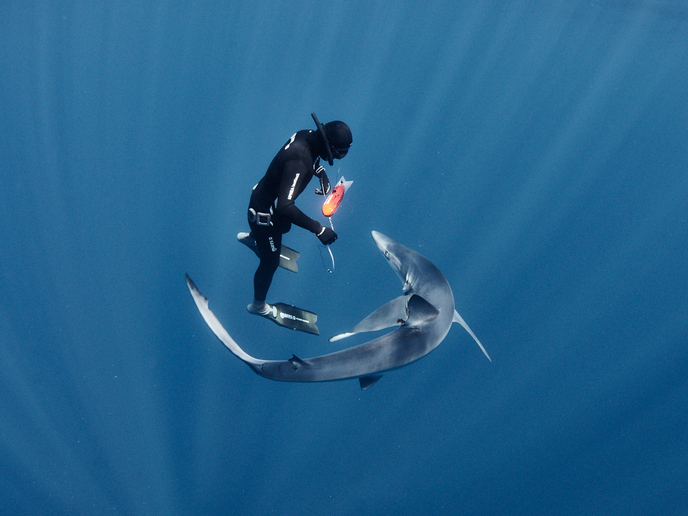Expanding ocean observation and data sharing
Oceans are the largest liveable space on our planet. They are also an incredible repository of biodiversity, a source of food and employment as well as oxygen and the planet’s largest carbon sink. Monitoring and protecting marine habitats are essential to our well-being and the world we live in, yet the majority of the global ocean is poorly observed or unexplored. The EU-funded NAUTILOS(opens in new window) project is complementing and expanding current EU tools and services to fill important gaps in marine observation and modelling.
New cost-effective sensing and sampling technologies
“NAUTILOS developed 14 new technologies that monitor a multitude of parameters including dissolved oxygen, sound (for both noise and porpoise and dolphin clicks for abundance estimation), phytoplankton, ocean acidification, silicate, and nano- and microplastics. Our low-cost, autonomous microplastics sensor for real-time on-site analysis will be the first-ever in situ sensor, revolutionising microplastics monitoring,” notes project coordinator Gabriele Pieri of the Institute of Information Science and Technologies at the National Research Council of Italy(opens in new window). The project’s large-scale demonstration will monitor 70 % of the more than 30(opens in new window) essential ocean variables defined by the Global Ocean Observing System. It will also address nine qualitative descriptors for determining good environmental status as defined in the Marine Strategy Framework Directive.
Enhancing temporal regularity and spatial resolution
One of the key issues with current technologies is a lack of widespread use and temporal regularity of sampling or data collection. “NAUTILOS targeted enhanced adoption and deployment via several approaches to address this: modular design and easy integration into existing platforms and observation stations; cost-effectiveness; and use in citizen science initiatives,” explains Pieri. Many heterogeneous platforms are candidate hosts, including those supporting calibration, validation and demonstration. Among them are moored buoys, drifters (drifting on the surface moved by currents), ARGO robotic profiling floats, autonomous underwater vehicles and autonomous surface vehicles. Others include deep-ocean observation platforms, landers (sea floor platforms), unmanned aerial vehicles (drones) and finned animals (via tagging). “NAUTILOS software and data products are open-source and, most importantly, the data products are also seamlessly integrated into external EU thematic centres such as the European Marine Observation and Data Network and SeaDataNet, a pan-European infrastructure supporting access to marine data,” adds Peri.
From citizen science to the European Commission
While companies, NGOs and researchers are key target users of NAUTILOS technologies, the team is raising awareness among citizens and policymakers too. “Our citizen science(opens in new window) campaigns are one of the major outcomes of the project. Valuable feedback from diverse users is helping us to improve our solutions – including a new citizen science app, a tool for performing algal bloom analysis, and a near-infrared scanner for microplastics, all easy-to-use smart phone tools,” notes Pieri. NAUTILOS also organised a policy round table in Genoa this year in the context of the Ocean Race Grand Finale. Representatives of the European Commission’s Directorate-General (DG) for Maritime Affairs and Fisheries and its DG for Research and Innovation (Healthy Oceans and Seas) highlighted the significance of ocean protection and ocean observation. NAUTILOS has delivered a wealth of tools and services to enhance the spatial and temporal resolution(opens in new window) of the EU’s marine observation programmes. Open access and citizen science will support engagement and use by stakeholders across the board, making a fundamental impact on marine preservation and environmental, individual and planetary health and well-being.







